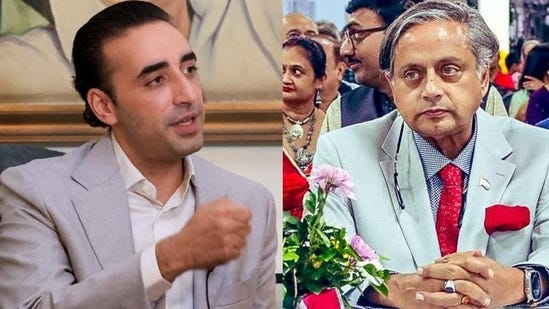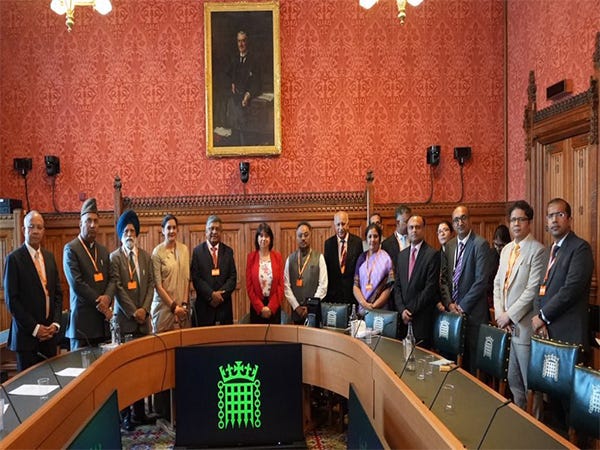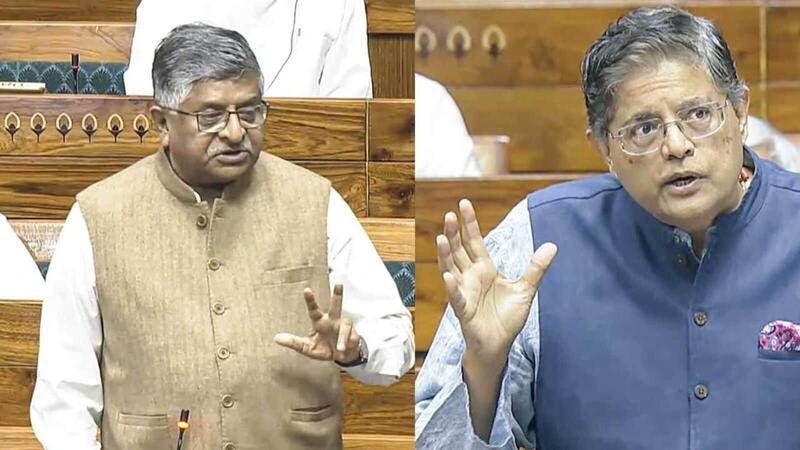By: John Elliott
With no prospect in sight of a permanent solution between India and Pakistan over the disputed territory of Kashmir, nor any sign of a reduction in tensions, both countries have dispatched delegations abroad with the aim of winning support from foreign capitals on their basic demands and their focus on terrorism. This follows military action taken by India earlier this month against Pakistan after gunmen shot and killed 26 people, mostly tourists, in the Indian Kashmir resort of Pahalgam on April 22.
India was the first off the mark, sending seven delegations of members of parliament to 32 countries to win international support for the condemnation of Pakistan as a terrorist state. The delegations are warning that India will respond militarily if Pakistan-oriented terror attacks occur again on its soil.
Pakistan has followed India’s initiative with a delegation headed by Bilawal Bhutto, former foreign minister and son of the country’s president, who is in the US, denying that it is responsible for the attacks. Bhutto will be in London next week. A separate mission has gone from Islamabad to Moscow to offset Russia’s historical closeness to India.
India responded to the killings in April by attacking terrorist installations inside Pakistan, which then hit back at India’s military locations. That led to four days of sharply escalating tit-for-tat aircraft and missile battles. Hostilities stopped on March 10 after diplomatic intervention by the US, UK, Saudi Arabia, and other countries that feared the two nuclear-armed countries could tip into a full-scale and possibly catastrophic war.
Narendra Modi, India’s prime minister, has said that there is now a “new normal” that any future terrorist activities would be regarded as a Pakistan military attack, to which India would respond militarily.
This virtual threat of war has caused alarm internationally, but India is concerned that it does not have support in foreign capitals for its claim that terror attacks staged every few years in Kashmir, and occasionally elsewhere, are organized and supported by the Pakistan government, or at least by the heads of the army and security services, notably the ISI.
That is why the delegations’ message is blunt. “India stands for peace, but if terrorists shed the blood of innocents, they will be held accountable,” said Ravi Shankar Prasad, a former BJP cabinet minister, who is heading the delegation. If terrorism was “aided by state actors — as in Pakistan — it must be treated as war.”
The Pahalgam attack that targeted Hindus was “ideological religious fanaticism sponsored by a proto-military state,” M.J. Akbar, a member of the delegation and a former newspaper editor and government minister, told me. That was why the country had united, including Muslims as well as Hindus, to support the government in its military response and in its attempt to win over international opinion.
Some critics in Delhi suggest that, aside from the mass of activity on social media, Pakistan was more successful at influencing the international press and foreign opinion during the four days of fighting, partly because the Modi government doesn’t bother to deal with the foreign media constructively..
“The Pakistani intelligentsia with aristocratic bloodlines and Oxbridge backgrounds have significant clout in Western liberal circles, including think tanks, NGOs, universities, and diplomatic parties,” Coomi Kapoor, a veteran columnist, wrote recently, reflecting a feeling common in Delhi that, as a country, India is frequently misunderstood abroad. “Modi’s India, painted by Pakistan as an illiberal democracy encouraging Hindutva zealots, is not a favorite in such company.”
India’s delegations each include seven or eight politicians along with a former senior diplomat. Demonstrating the rare country-wide support for action aglint Pakistan, the politicians include at least one Muslim and come from all political parties, though the government rejected a mostly low-level list of names proposed by the Congress Party and picked representatives with foreign policy experience including Shashi Tharoor, a former senior UN official, to lead the delegation to the Americas.
Rahul Gandhi, the Congress party leader, is campaigning in Delhi to undermine unity despite the national mood, attacking the Modi government for allegedly bowing to a trading-linked demand by President Trump that the fighting should stop. “Trump gave just a signal, picked up the phone and said, ‘Modi ji, what are you doing? Narendra, surrender,” Gandhi alleged recently. “Narendra Modi obeyed Trump’s signal.”
India is specially targeting countries that are current members of the United Nation Security Council, where Pakistan is currently a member, but India is not, on the council’s revolving membership system. On the list are small countries that it rarely bothers with diplomatically such as Denmark, Colombia, Panama, Liberia, and Congo.
But the list doesn’t include South Asia countries – Bangladesh, Sri Lanka, Nepal, the Maldives, and Afghanistan – where one might expect an initiative to begin. “If our neighbors are not persuaded, what hope is there of distant Panama even beginning to understand our argument?” asks Mani Shankar Aiyar, a former diplomat and Congress government minister.
Pakistan is trying to whip up international support for the Indian military action, dubbed Operation Sindoor, to be examined and condemned by the UN unless India can prove (which would be difficult) the direct involvement of the Pakistan government.
Significantly, Bhutto has admitted in the US this week that it lacks support for its claim that Indian Kashmir should be part of Pakistan, which is the primary issue generating the hostilities. “As far as the hurdles we face within the UN and in general, as far as the Kashmir cause is concerned, that still exists,” he said in New York.
The Indian delegation that has been in London this week as part of a Europe tour has been talking to parliamentarians, policy think-tanks, the media, the Indian diaspora, and other groups, as well as second-ranking politicians in the British government and parliamentary opposition. The two countries’ prime ministers, foreign ministers, and top diplomats are regularly in touch, so the job has been to canvas opinion more widely.
India’s warnings do not, however, mean that a war between the two nuclear neighbors is imminent. There is no chance of military action until there is another terror attack. The last attacks were in 2019 and 2016 so, on past performance, they might not happen again for three or four years or even longer. Some security specialists, however, fear that Modi’s threat might increase the risk of an earlier attack because terrorists will want to seize the chance of creating major conflict
India is now the world’s fourth largest economy and Modi’s primary economic and diplomatic focus since he came to power in 2014 has been to build the country’s status as a peaceful and stable major power that welcomes foreign trade and investment.
The Kashmir attack and India’s military response are a major setback to that aim, which is why the government believes it needs to win world opinion to stop Pakistan avoiding, in the UN and elsewhere, being marked out as a terrorist state.
John Elliott is Asia Sentinel’s South Asia correspondent. He blogs at Riding the Elephant.




